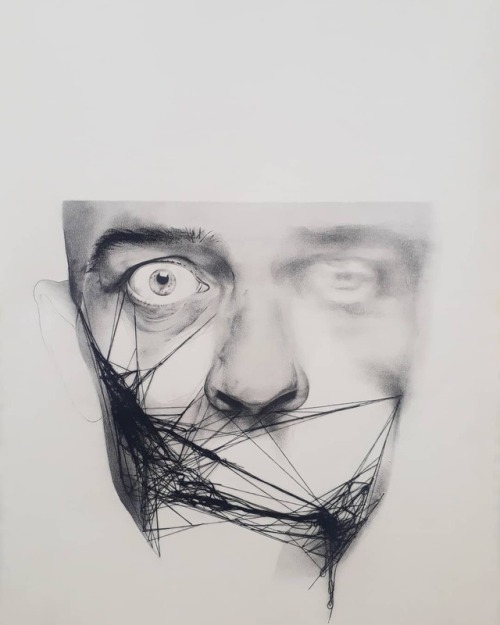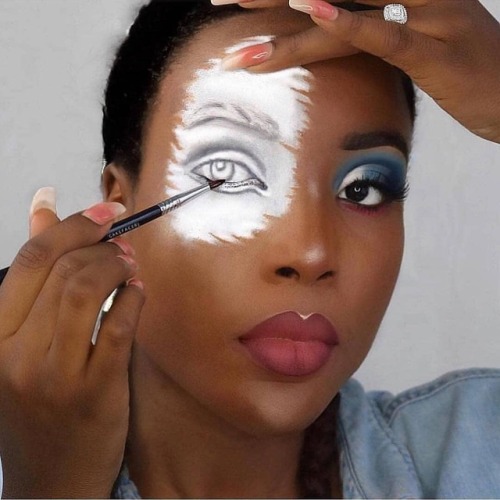

Why do we age? The fundamental causes of aging at the molecular level are relatively well established, and have been addressed on the podcast before. One example is the loss of protein homeostasis, which contributes to misfolded proteins (a characteristic exhibited in neurodegenerative diseases like Alzheimer’s). Another example is the accumulation of senescent cells, which induces chronic inflammation and contribute to functional decline of tissue over time.
So we understand, to some extent, how aging happens, and the proximal causes of the time-related decline of physiological function that all of us experience. But the question of why aging happens in the first place is a more challenging one, one which has bedeviled evolutionary biologists and philosophers for years.
You might think, intuitively, that the process of natural selection would gradually remove individuals that were subject to these signs of senescence. Aging increases mortality, and organisms that experience impaired function and ultimately die would not be able to produce as many offspring as one that was able to live (and to reproduce) indefinitely, or at least for a much longer timespan. Following this line of reasoning, you would assume that this would result in selection for organisms that live much longer, generate more offspring, and ultimately the causes of age-related deterioration would fade from the genome.
Yet aging is very commonly observed, and animals that experience negligible senescence are arguably the exception rather than the norm. Why is that?
Antagonistic pleiotropy
Pleiotropy, in genetics, refers to a single gene that affects two or more distinct traits that seem unrelated. Perhaps the earliest recognized example of this was Gregor Mendel’s pea plants. Mendel observed that plants with colored seed coats always had colored flowers and colored leaf axils. We now know that this is because the gene that codes for the coloration of seed coats is also responsible for flower and axil pigmentation.
Okay, that example seems pretty benign. But sometimes pleiotropic genes produce traits that are both beneficial and detrimental to an organism, and this is what we call antagonistic pleiotropy. A good example, and one with which you might already be familiar, is sickle cell trait. Sickle cell disease is caused by a single mutation in the hemoglobin gene, causing a change in the shape of the red blood cell. This alteration impairs the elasticity of red blood cells and results in a cascade of medical problems, substantially reducing life expectancy in those who are homozygous for the trait. However, the mutation remains relatively common in individuals who live in (or whose ancestors lived in) tropical and Mediterranean regions. This is because it confers increased resistance to malaria, particularly very early in life. Malaria is estimated to kill over one million people every year, and young children are at greater risk. It’s not hard to see how a gene that significantly increases survival in childhood against such a menace would be propagated, even if it sometimes compromised health later in life.
Antagonistic pleiotropy has been proposed as a governing explanation for the evolution of aging. And if you think carefully about the example of sickle cell disease, it should become clear how that might work.
Natural selection is strongest early in life. This makes sense – the natural environment is fraught with peril from predators, disease, and other nasties, and the young are particularly vulnerable. Consequently, genes and pathways that enhance survival and reproduction in youth will tend to be favored – even if these traits come at the price of deteriorating health later in life, when selection is comparatively weak. We now know, for example, that gene variants that increase fertility have been shown to simultaneously increase risk of certain reproductive cancers, and a number of genes that associate with coronary artery disease appear to provide a fitness advantage early in life.
So, what we call “aging” is really an incidental trade-off, a long term side effect of genes that help us survive childhood and reproduce early on.
But does that mean aging is inevitable? Can it be slowed, or postponed, or stopped altogether?
That brings us to our guest for this episode.
Guest
In this installment of humanOS, Dan talks with Michael Rose. Dr. Rose is a Distinguished Professor of Ecology and Evolutionary Biology at UC Irvine. He is a prolific biologist whose research into the evolution of aging has effectively transformed that field. In fact, Dr. Rose is the man who originally coined the term antagonistic pleiotropy (though the phenomenon had been previously described by other scientists long ago). So, he is kind of a big deal.
Rose’s laboratory has been testing the theory of antagonistic pleiotropy for nearly forty years, through artificial selection experiments in fruit flies. Fruit flies might seem like an unlikely candidate for understanding aging (especially with an eye toward eventual translation to humans). However, their short lifespan and rapid reproduction actually makes them ideal for studying evolutionary dynamics, which often take many generations to be observed. For nearly forty years, the lab has been collecting eggs from the longest-lived flies in each generation, essentially breeding them for greater longevity.
'You go from very little ability to deal with infectious disease to almost complete control of infectious disease...I hope for exactly the same thing in this century with respect to aging.' - Michael Rose
Click To Tweet
In what was perhaps his most famous experiment, Rose allowed flies to only reproduce successfully if they laid their eggs late in life. He discarded the eggs of any flies that laid eggs before they reached fifty years of age. Over a few generations, this population of flies evolved longer lifespans. Why might this be? Remember that natural selection is strongest early in life, and becomes weak later on. In theory, if adults reproduce when they are older, natural selection is apt to favor genes that enhance resilience (and reproduction) later into the lifespan.
Dr. Rose’s research into aging has also drawn him to some interesting (and possibly controversial) notions about evolutionary changes in the human diet, and how our age may influence how adapted we are to modern agricultural foods. To learn what that means, and its potential implications, check out the interview!
LISTEN HERE
YOUTUBE
SUPPORT
Have you considered becoming a Pro member of humanOS.me? It costs just $9.99 per month, and when you go Pro, you get access to all our courses, tools, recipes, and workouts. Pro members also support our work on blogs and podcasts, so thanks!
LEAVE A REVIEW
If you think other people would benefit from listening to this show, you can help us spread the word by leaving a review at iTunes. Positive reviews really help raise the profile of our show.
TRANSCRIPT
| Michael Rose: | 00:06 | You go from 1900 to 2000. And you go from very little ability to deal with infectious disease to almost complete control of infectious disease, at least in advanced industrial countries. I hope for exactly the same thing in this century with respect to aging. |
| Kendall Kendrick: | HumanOS; Learn, Master, Achieve. | |
| Daniel Pardi: | 00:24 | Welcome back, everybody. Today I have with me Professor Michael Rose. Michael is a distinguished professor of ecology and evolutionary biology, School of Biological Sciences at UC Irvine. He is the author of many books, including The Long Tomorrow: How Advances in Evolutionary Biology Can Help Us Postpone Aging. So Michael, I’ve been looking forward to our discussion. Welcome to the show. |
| Michael Rose: | Thank you, great to be here. | |
| Daniel Pardi: | 00:33 | I thought we could begin learning more about how your interests in the field of aging science group. Tell us about your influences like Peter Medawar and William Hamilton and how that led to you forming your own hypotheses and the work that you’ve been doing. |
| Michael Rose: | In the summer of 1975, I met John Maynard Smith, one of the truly great English biologists of the latter part of the 20th century. I wanted to work with him for my PhD, but he wasn’t interested in taking any more graduate students. So instead, he handed me off to a junior faculty member at the University of Sussex, where they were both based. That junior faculty member was Brian Charlesworth. At the time, not a particularly well known scientist. | |
| Michael Rose: | 00:55 | One of the big themes of Brian Charlesworth’s work was the evolution of what biologists call life history. An important part of which is, of course, aging. And Charlseworth had been looking for a graduate student who would show, in a lab setting, that his math worked. And I was actually the fourth graduate student that Charlseworth acquired for that purpose. The previous three had all crashed and burned. I didn’t know that when I came to the University of Sussex, a year later in the fall of 1976, to start work on the evolution and biology of aging. |
| Daniel Pardi: | What were the first experiments that you conducted to explore this math? | |
| Michael Rose: | 00:57 | Well, that’s a great question to ask an experimental scientist. So the first experiment that I did was mostly the idea of my doctoral advisor, Charlseworth, only I was a bit afraid that he might be wrong in his basic idea about what the experiment would show. So I did a much larger version of the experiment that he wanted me to do on basically what we call a quantitative genetics of aging. And I note with amusement that just in the last few weeks, Calico published a paper on the quantitative genetics of aging, it totally reminded me of the work that I did in the 1970s. |
| Michael Rose: | Now, the experiment that Charles with had me do took me 420 days straight every single day in the lab. Some of those days lasted 24 hours, some days I would work up to 30 hours straight. But in the middle of doing that experiment, I came up with a second experiment entirely on my own, which was one of the first experiments in a field that … I played a role in creating a field called experimental evolution. And halfway through my 420 day experiment for Charlseworth I thought, “I think I can do this much more easily than Charlseworth is wanting me to solve the problem of aging, just by making aging evolve in the lab.” And in particular, I thought I had a way to make aging evolve so that it was postponed or slowed. | |
| Michael Rose: | 01:10 | I started that experiment when he was away on sabbatical. He then came back a year later, basically to discover I’d done both his experiment and the secret experiment, and they turned out to give the same basic result, which is that one of the most important things controlling aging was genetic tradeoffs between early health and later health, so that if you tilt evolution so that it focuses on later health, you can easily, in a lab over multiple generations, evolve an organism that will live much longer. In my case, I was doing this experiment with Drosophila, but it’s since been shown you can do it with anything. |
| Michael Rose: | The much longer lived flies, to summarize decades of work, pay a cost in terms of their early ability to reproduce under bad conditions. If you delay reproduction, evolutionarily and do it for many generations, you produce an organism that will live longer, but is not as good at reproducing right out of the box. In the human analogy would be like in high school, versus how fruit flies normally reproduce, which is like a trailer park trash method of reproduction, which is you hit sexual maturity and bang, you immediately reproduce and then very soon you’re a grandparent. And then to convert that back in human terms, that’s like being a grandparent in your early to mid 30s. | |
| Michael Rose: | 01:40 | So evolution loves trailer park trash. Evolution loves people who reproduce quickly and dirty as it were. If you’ve seen the film Idiocracy, we’re talking about Clevon. The other couple in Idiocracy are more like my experimental evolution work, produce much longer lived organisms in part, because the organisms that cannot survive to a later age and be healthy enough to reproduce don’t contribute to the next generation. |
| Daniel Pardi: | This does not necessarily indicate that if somebody living today has children later, that’s what’s determining their rate of aging, but rather the average age of reproduction in a population. | |
| Michael Rose: | 02:20 | The average age of reproduction in a population over many generations, especially the first age of reproduction in a whole population. So you want to have a whole population where everybody goes to graduate school and doesn’t even think about having kids till they’re in their mid to late 30s. |
| Daniel Pardi: | What is aging? | |
| Michael Rose: | 02:24 | What is aging? |
| Daniel Pardi: | Yeah. | |
| Michael Rose: | 03:00 | I published an article on that in the last 10 years. My answer is that aging is the loss of adaptation at each age over the adult lifespan. That is to say you’re a male, as a male, you had your peak capacity to reproduce between the ages of 17 and 20. That’s when your sperm count was at its highest. That’s usually when your ability to athletically train is close to its peak. You were then an absolutely awesome organism. So in terms of the extent to which you are adapted, you are highly adapted at that age. |
| Michael Rose: | I’m now in my mid 60s, and my capacity to do anything athletic is vastly diminished. I can guarantee, I hope this isn’t TMI, my sperm count is fastly lower, which is great because it keeps me out trouble. That’s what we’re talking about. So between the ages of 18 and where I am at 63, which is 45 years, it’s been all downhill for me as a Darwinian organism that can run three miles and then spot the maiden across the meadow and woo her and do what comes after woo. All of that has totally declined. That is how I define aging. | |
| Michael Rose: | 03:45 | Now, what underlies that is really the debate because my kind of definition of what aging is is actually a commonly cited definition in the scientific literature. So the question then becomes, if evolution is the master regulator of aging, and aging is, in a sense, the D tuning of adaptation, because of evolution failing to pay attention to our later health, which is what we can show mathematically, that’s what it does. It gives up on you like Rhett Butler giving up on Scarlett O’Hara by the end of Gone with the Wind. |
| Michael Rose: | What then underlies that? Is it one type of deterioration like free radical damage as Denham Harman would say? Is it telomere shaving off as it were, telomere attrition or reduction in length? Or is it [inaudible 00:07:59] Seven Deadly Sins? Well, we actually have answers to that question. They’re not widely appreciated for several reasons; one is they’re technically difficult to follow. So we’ve done genomic analysis across the entire genome of fruit flies, where we have produced much longer organisms, the graduate school kind of organism. And we produce trailer park trash organisms, which have roughly a two-fold difference in lifespan, just in terms of longevity are much greater difference in health span. If you look at the underlying genomics of what’s going on with those organisms, you find that there are hundreds of sites distributed across the genome that are implicated in the control of aging, specifically in postponing or slowing aging. So it’s not one thing, it’s not seven things, it’s hundreds of things. | |
| Daniel Pardi: | 04:22 | Much of the discussion now seems to revolve around the cellular mechanisms, as Aubrey talks about death resistant cells, aggregates that built up outside of the cell and inside of the cell, loss of tissue atrophy, mitochondrial mutations, cancer cells. So all of these things are consequences of the aging process. Maybe the question then is, are those things driving the aging process or they really symptoms of the aging process that is occurring through these fields that you’ve identified as being important in determining the rate of that aging process? |
| Michael Rose: | That’s a great question, but let me take a step back, perhaps to clarify things a little bit, please. So the point that evolution acting through the genome tunes aging and it tunes it in a manner that depends on adult age, that does not imply that there is one central physiological process that is aging. That’s a very big intellectual mistake. Aubrey and the others who believe that are in great company because almost everybody has made that same mistake since Aristotle. | |
| Michael Rose: | 05:02 | However, if aging is basically adaptation, molded by evolution through the genome, we already know that adaptation is not a physiological process, at all. It involves physiology, but the debate between Darwin and Lamarck in the 19th century settled that issue. Lamarck felt that adaptation was a physiological process that in turn engendered an evolutionary progression through time. Darwin argued the other way around. He argued that evolution controlled by natural selection shaped physiology so as to produce adaptation. And Darwin won that argument; almost no one remains a Lamarckian. The only way logically aging could be a physiological process would be if we actually lived in Lamarck’s hypothetical universe rather than Darwin’s. |
| Michael Rose: | Unfortunately for Aubrey de Grey and those like him, we live in Darwin’s universe not Lamarck’s. Therefore, we know that there is no central physiological process of aging because that in turn would require there be a central physiological process of adaptation, which is not true. | |
| Daniel Pardi: | 05:29 | While the order of importance here flows in direction you just indicated, do you find that if you are looking at an intervention that affects the cell in some way, like mitochondrial mutations, that is still a fruitful area potentially to affect health span and longevity in humans? |
| Michael Rose: | You probably don’t remember Mao Zedong saying this because he died in the 1970s. But he said, “Let a thousand flowers bloom,” speaking of the cultural revolution. And I would say exactly the same thing about research on the machinery of aging, that the machinery of aging involves hundreds of things; including mitochondrial mutations, including telomeres, including free radicals, and on and on and on. However, I will also add that the ways in which all of those things contribute to the aging process is not going to be inferred correctly. People who do experiments where they are starting with a predicate, that their one mechanism is the cause of aging. You’re only going to make progress by using genome-wide transcriptome-wide and metabolome-wide approaches. Because those are the tools by which you analyze complicated bits of biology that involve hundreds to thousands of different individuals small bits or components of that larger machinery. | |
| Daniel Pardi: | 05:41 | I think this is a good time to introduce the term pleiotropy. Did you also coin antagonistic pleiotropy and protagonist pleiotropy? |
| Michael Rose: | I coined the term antagonistic pleiotropy, which I should explain, an idea that dates back to the 1930s. That’s a very general genetic concept. It means one genetic difference having multiple effects, some of them good, some of them bad. That idea has been around approximately forever, much longer than my lifetime. | |
| Michael Rose: | 05:56 | Both Peter Medawar and George Williams in the 1940s and 50s discuss the relative importance of what I termed ‘antagonistic pleiotropy’ versus another process, which I called ‘mutation accumulation’. It turns out that antagonistic pleiotropy is, by far, the dominant genetic factor in controlling aging. Now one of the things we discovered, however, along the way, in our research is something that Aubrey de Grey, I believe named protagonistic pleiotropy, which is also a very important concept. And that is the concept by which if you foster the health or the functionality of an organism at an early age, you might get age independent benefits throughout the lifespan. That’s protagonistic pleiotropy. |
| Daniel Pardi: | And does that have to do with hallmarks of aging like reduced cellular damage that then you’re building off of a stronger foundation once reproduction age ends? | |
| Michael Rose: | 05:57 | Yes. So organisms like humans are spectacular at staving off cancer, at eliminating damaged cells, especially cells that are potentially malignant. We’re very good at that by Malian standards. Mice and rats are terrible at it. And that’s why so many promising “cures for cancer” derived from rodent research fail in applications to humans. I think in large part because we already have some version of that same kind of mechanism already. |
| Daniel Pardi: | One other housekeeping thing that we need to introduce here is Hamilton’s forces of natural selection, which we’ve talked about a bit, but I think diving into it more deeply will help to latter parts of the talk. So 1966, William Hamilton published “The Molding of Senescence by Natural Selection’. What are these forces and what does that mean in the context of aging? | |
| Michael Rose: | 05:57 | This basic concept was first put forward by Haldane verbally in the 1940s. And that was the basis for the arguments of Peter Medawar, but they were only verbal. What Hamilton did was a very serious mathematical analysis from first principles about how Darwinism has to work, if you have what, in our field, we call age structure or overlapping generations. Which simply means you’ve got adults that produce offspring using seeds or eggs that start as single cells and then grow into whole organisms, which is how, of course, all vertebrates reproduce all insects and so on. Hamilton basically showed that whenever you have that kind of reproduction, absolutely every time you have that kind of reproduction, and only that kind of reproduction, natural selection is very strong at all ages up until the start of reproduction in a population. And then once reproduction starts in that population, the force of natural selection progressively dwindles down to nothing on or before the last age of reproduction in a population. After that last stage of reproduction, Hamilton’s forces stay flat forever. |
| Daniel Pardi: | This ends up being this overarching framework then to understand the power of natural selection in early age, why we age at all, timing of it, why it stops, and then the timing of when it stops. And you’ve manipulated this with your fly work directly showing that these forces are essentially the primary mover of aging process. So you took fruit flies, you’re able, over multiple generations, to shift the age of first reproduction later. So that you had the med school flies that were waiting to reproduce and you had the trailer trash flies that as soon as reproduction started, they reproduced. As soon as that happens, the decline of Hamilton’s [inaudible 00:16:21] production begins, and then the aging process happens earlier. | |
| Michael Rose: | 05:58 | Mm-hmm (affirmative). |
| Daniel Pardi: | Okay, great. So once you’ve adjusted to population, you could also influence rate of aging by diet. What are the different diets that we looked into and what were the effects there? | |
| Michael Rose: | 06:33 | Well, we started working on diet in the early 90s, particularly from the standpoint of dietary restriction, and its impact on patterns of aging. And one of the things that we, I think, made completely clear in our work starting in the 1990s is that, if you restrict access to calories or quality nutrients, what organisms will do is curtail reproduction. And through curtailing reproduction, you get a secondary benefit in terms of your capacity to survive. Until you return to a diet with enough calories and nutrients, reproduction turns back on and you go back to the normal pattern of aging. That was our work, primarily the 1990s, primarily by my then graduate student, Adam Chippendale. |
| Daniel Pardi: | Does the timing of that dietary restriction need to occur within the reproductive window? | |
| Michael Rose: | 07:14 | Yes. So basically, you’re getting a benefit by the shutting down of reproduction. So one of the things that’s not sufficiently studied when people work on caloric restriction is its impact on the capacity of the organism to do stuff. Basically, a simple way to think of this, and this is like antagonistic pleiotropy, although it doesn’t have to involve a genetic mechanism. Antagonistic pleiotropy is specifically a genetic version of the idea of a cost of reproduction. The other version of a cost of reproduction is just the physiological one, which if you’ve ever had small kids, you would understand. [inaudible 00:17:57] the energy right out of you. |
| Michael Rose: | If you can curtail an organism’s ability to do stuff like reproduce, which is the single most important thing adult organisms do from a Darwinian standpoint, then you give them in a sense of boost to their baseline capacity to survive. But as soon as they resume reproducing, very soon you take that away. Because we’ve actually discovered some of the main physiological features of aging in our fruit flies, we have markers that tell us that the calorically restricted fruit flies are better able to resist stress, and would be better able to survive during this period when they’re eating less and reproducing less. Then once you give the food back to them over the course of the next two days, and roughly an adult fly, you can think of as a day comparable to a human year to an order of magnitude. That was our work, but we get a dramatically and proportionately less benefit than rodents do from caloric restriction in fruit flies. | |
| Michael Rose: | 07:45 | With caloric restriction, you can work roughly double or come close to doubling the lifespan of some rodent lines and species. By the way, it does vary among different most populations, different rat populations and of course across small mammal populations where these experiments are done. With the fruit flies and some other larger animals, you get an order of magnitude less benefit. And together with J. Phelan of UCLA, we looked at data on caloric intake and lifespan in Japanese populations. And from those data, we estimated what the maximum likely life extension from caloric restriction would be in humans. Our estimate is unfortunately very small. Our maximum estimated benefit is only on the scale of about three years from a lifelong pattern of caloric restriction. |
| Daniel Pardi: | Maybe not worth it. | |
| Michael Rose: | 08:47 | Most people who are clinically restricted are grumpy and unhappy. Not all, some people get very cosmic and zen. And you know, it’s like they’re ready to assume the lotus position and meditate for the next 30 years. But quantitatively, we know that that greatly impedes both male and female fertility. Severe caloric restriction like anorexia nervosa or extreme Olympic athletes suppresses the menstrual cycle in women, it causes the sperm production of human males to crash. So if you’re 120 pound male caloric restrictor in your 30s, that may be impeding your ability to biologically reproduce. So the same qualitative patterns exist across fruit flies, rodents, and humans. But the rodents derived by far the biggest benefit from caloric restriction, they’re the best case. Humans, unfortunately, are at opposite end of that spectrum. And this was a big part of J. Phelan’s research in his doctorate at Harvard in the 1990s. |
| Michael Rose: | Now, having done all that research all through the 90s into the early 2000s, I wasn’t that interested in caloric restriction anymore, but then around 2010 I had a new idea. My new idea was this, that because the force of natural selection is very strong at early ages and then fades out with biological age, that means that human populations that have a history of agricultural cultivation and diets, like the populations of Eurasia, are probably only well adapted to agricultural foods when they’re younger, and at later ages that adaptation fades out. Now, there’s very good research done by medical anthropologist like Staffan Lindeberg, the late Staffan Lindeberg, on populations of Australasia, where he and others like him, show definitively that those populations have their health destroyed by agricultural foods, because they’ve never adapted to them. | |
| Michael Rose: | 09:23 | There is lots of anthropological evidence that when Eurasian populations first adopted agriculture. I was actually reading this morning in bed at 5am. Their health was ruined, just absolutely awful. They became shorter, their bones were porous, they were just a mess. But that was thousands of years ago. Because since 1980 we’ve learned that natural selection can work very fast, and I’ve been one of the people whose shown that in the lab, that means that at young ages up until the age of 30, people with Eurasian ancestry are probably very well adapted to agricultural foods. At some point in time, this theory suggests they’d be better off on their ancestral foods. |
| Michael Rose: | Now, as it turned out, we accidentally did a Neolithic Revolution in my lab by sampling flies from apple orchards in the mid-1970s. And then spending much of the last 40 years feeding them on banana food, which they’d never received before in their evolutionary history. And that is made those flies very well adapted to banana when they’re young, but at later ages even though they haven’t seen banana foods for about 1000 generations. That’s more time than that Neolithic revolution in humans. Despite that at later ages, much later ages, they do far better on Apple diets than they do on banana. | |
| Daniel Pardi: | 09:52 | Which is their long abandoned diet once they were switched to the banana diet. |
| Michael Rose: | Exactly. Their long-abandoned, or to use the human term, their paleo diet. | |
| Daniel Pardi: | 10:43 | Darwinian theory would indicate that you’d have to have tens of thousands of generations you see adequate adaptation to environmentally novel conditions. What you’ve been able to show is that speed with which evolution can work is actually much faster than what was previously thought. |
| Michael Rose: | In fact, since 1980, there are dozens and dozens of studies by myself and others in the lab and in the wild. I’ll give you an example that just surfaced in the last month from National Geographic. It turns out fewer and fewer elephants in Africa are developing tusks, especially females as they get older, because that protects them from the poachers that want to kill them for the ivory in their tusks | |
| Daniel Pardi: | 10:59 | Amazing. You showed as little as 40 to 100 generations, you could adapt with flies, but this has to be even faster than that. |
| Michael Rose: | Yes. And in fact, there’s data from the Galapagos finches, from all kinds of organisms now in the wild that they will start adapting almost immediately, important where they’ll start. Some of these female elephants are still growing their tusks and therefore are still in danger of poaching. It’s not like it’s all been completed as the process of adaptation in the last 30 to 50 years of massive poaching, but it started. | |
| Michael Rose: | 11:19 | The vision of modern evolutionary biology is that adaptation can proceed very, very fast in response to strong natural selection. But the payoff from the aging standpoint is natural selection is only strong at early ages. So in a sense, our aging has been amplified at later ages, so long as we consume an agricultural diet. On agricultural diets we have, in a sense, the normal background aging process that will go on regardless of environment plus an additional lack of adaptation to the agricultural foods that we eat, even very wholesome, organic agricultural foods. |
| Michael Rose: | Let me add one more kicker, when you eat what I call the ‘industrial diet’, which is the center of the supermarket, where the Twinkies and the sodas reside. You’re just trying to start a new Neolithic Revolution on all kinds of foods that absolutely no one is adapted to whatsoever, because so many of those foods are only 40 to 120 years since their first introduction, and that’s everything from high fructose corn syrup, to seed oils to the new forms of grain, all that stuff, and forget the roundup and the antibiotics, the insecticidal components, the preservatives. We’re not adapted to any of that crap. No one at any age should be eating any of that stuff. | |
| Daniel Pardi: | 12:16 | We have three different diets we’re talking about in your flies, which was multi apples, that’s equivalent to a Paleolithic diet for us. Another diet equivalent to the Neolithic diet, so this was the banana. They had many generations where they only ate that and they adapted to it rather quickly at early ages. The first adaptation that takes place to novel stimuli in your environment is disproportionately placed in the reproductive window. |
| Michael Rose: | Well, early reproduction and in the first part of the reproductive window. | |
| Daniel Pardi: | 12:23 | A young child growing up today is a really good version of a Neolithic diet, lots of full grains, things like that. They’re going to be as robust as those living on along with diet? |
| Michael Rose: | Yes. | |
| Daniel Pardi: | 12:41 | Got It. The third diet is one that is equivalent to a post-industrial diet for us, where they are put on their most recent type of diet and they didn’t flourish. Their survivability or their ability to reproduce was diminished compared to the other groups. |
| Michael Rose: | Yes. We showed all of these things experimentally. Although our version of novel industrial diets is probably more benign than what humans eat. We just traded oranges for bananas and they’re nice organic oranges and everything else is left the same. If we had given our fruit flies an orange based diet since the mid-1970s, they would probably do really well, on the orange based diet, but as it happened, we chose banana instead. So that’s their Neolithic diet. | |
| Daniel Pardi: | 13:25 | Your version of the paleo diet for the flies is not as good as probably the realistic one because you have to reproduce it in the lab and your version of the most modern diet, the standard American diet of today is more benign. If anything, you’re probably seeing a compression of the effect size between the groups. |
| Michael Rose: | That’s right. We are underestimating the differences between those three kinds of diets because we can’t truly replicate the fly paleo diet. We’re just doing what I call the ‘Trader Joe’s’ emulation of a paleo dietary regime. We’re not going to the Congo and getting our plant and animal foods in ways like we would have done 20,000 years ago, we’re not coming close to that. I think that’s good news for those of us who are unlikely to go out bow hunting for deer, running through the forest and bare feet. I’m not up for that. I don’t have time or energy, but I can go to Trader Joe’s and Paul Foods, and number one, of course, buy organic food. And number two, just avoid everything that derives from novel agricultural sources, from grains, to legumes, of course, anything derived from milk, including butter. All of those are gone from my diet, as they’re gone from a whole slew of my friends over the age of 40, especially over the age of 50. And all of my nerdy friends who then make my version of the paleo transition, get spectacular results in terms of improvements, athletically, fat-body content, fertility, you name it. | |
| Daniel Pardi: | 13:35 | That’s probably the most important point of emphasis here. The good version of our Neolithic diet, whole grains, et cetera that does as well early in life and in the early phase of reproduction as the paleo diet. But after that reproductive window, how do the fruit flies fair on this Neolithic diet that they were thriving on earlier in life? |
| Michael Rose: | They fair of course, far worse than they do on their long abandoned ancestral diet. And interestingly, they do about as badly on their Neolithic diet as they do on a completely novel diet. Which is a direct illustration of the point that their adaptation hasn’t penetrated that deep into the life history. | |
| Daniel Pardi: | 14:07 | And that probably takes the tens of thousands of generations to- |
| Michael Rose: | Yes. We have been hunter-gatherers who have been using fire and tools and getting most of our calories and key nutrients from animal sources, the most of our bulk from plant sources for about a million years, and that’s plenty of time for us to adapt to that lifestyle. | |
| Daniel Pardi: | 14:26 | So if you then are in your post-reproductive window being on or switching to a Paleolithic diet or our best version of that that we can emulate through Trader Joe’s, as you say, that is going to confer a survival robustness advantage compared to the really good version of the Neolithic diet. And that’s according to the strong evidence based from your fruit flies. |
| Michael Rose: | But the fruit fly work was just testing actually math, because you go from Hamilton’s work through some mathematical analysis, computer simulations, to this conclusion. I’m only using words but the key scientific logic underlying all of my work is based on mathematical theory very much parallel to Einstein’s relativistic mechanics. A lot of the patterns and the equations are just like that. | |
| Daniel Pardi: | 15:41 | What was the longevity difference compared to the good Neolithic to the Paleolithic diet? How much longer do the Paleolithic diet flies live? |
| Michael Rose: | That number varies because just longevity is not your best indicator. It’s the whole pattern of age specific function, we have this measure, which is the product of your age specific capacity to survive times your age specific capacity to reproduce, which is PXMX, which gives an instantaneous readout on your health and function. And that would be true for humans as well. Although in humans, the interesting thing is, you see, you don’t really have a post reproductive window in humans to an evolutionary biologist, because as a human, if you’re taking care of your grandkids, you’re still functionally reproducing, because you’re fostering the proliferation of your genes through subsequent generations. So there is no such thing as a post reproductive period in humans. Even if women are menopausal; if you have children to take care of or grandchildren take care of, or for that matter, nieces, nephews, grandnieces, grandnephews, you’re still reproducing. You’re still spreading your genes from the standpoint of an evolutionary biologist, even if you’re not reproducing in the sense of an obstetrician or anything like that. | |
| Daniel Pardi: | 16:25 | So the grandparent hypothesis that we live, as long as we do long after when we typically have children so that the grandparents can help rear the relatively few offspring that we do have so that they will then produce in the next generation. |
| Michael Rose: | I think that that’s true. But you also have to think about it in terms of the mother hypothesis, which is that humans have a very dangerous process of giving birth Older women are more liable to die giving birth. If they die giving birth, their children under 12 will have their survival endangered. And this is a very general pattern actually, across the larger, longer-live mammals to have a menopausal period. Even some rodents show an attenuation of female of reproduction with age, even when they continue to live. But that’s because mammals as an entire group, give more care to their offspring than any other group of animals throughout the living world. The grandmother hypothesis is just one part of a very general mammalian pattern of taking care of your descendants immediate or indirect. | |
| Michael Rose: | 16:26 | As a group mammals have a very vulnerable offspring. Humans are, of course, the most extreme case, but newly produced kittens are very poor taking care of themselves, of course. To be an effective mother, in our group, the mammals means you really have to be around to take care of your offspring so that if you die in childbirth, in middle life, that’s very bad, because then your offspring won’t make it. Whereas, if you’re a cockroach or a fruit fly, not a problem. That’s why I don’t like the term post-reproductive in humans. |
| Daniel Pardi: | I wonder if you’re able to extend that robustness curve in humans then, is that feeling of wanting to reproduce going to be maintained as well? | |
| Michael Rose: | 16:36 | Okay, well, I have a confession to make, which is, I have a three year old. |
| Daniel Pardi: | Wow. Do you mind if I ask how old you are? | |
| Michael Rose: | 17:21 | I’m 63. So I have a 33 year old child and a three year old child, so I’m sort of practicing my Darwinism. |
| Daniel Pardi: | We’re always cautious to be prescriptive, but the ways that you did that, and I know you maintain a paleo diet today, when did you personally switch to a paleo diet? | |
| Michael Rose: | 17:26 | Late 2009. |
| Daniel Pardi: | And what is your version of that diet look like? | |
| Michael Rose: | 18:00 | Well, I mostly shop at Trader Joe’s. Number one, I tried to buy as much of the organic stuff as I can. And I get the bulk of my high quality nutrients from animal sources, although I also get as much saturated fat from plants as I can like avocado being one of my favorite. And lots of fruit and salady type vegetables, but of course, nothing derived from grains, rice, corn, legumes, or milk. |
| Daniel Pardi: | I’m sure you’ve thought about the potential paradox here at the Mediterranean diet. Mediterranean diet is loaded for those who are consuming it 40 years ago, 50 years ago, and the disproportionate amount of super centenarians in that population isolated on Korea, Sardinia, so Greece and Italy, they live to and beyond 100 with high frequency. Do you think that that’s because the Mediterranean diet in its true form is pretty similar to a paleo diet, just include legumes? | |
| Michael Rose: | 18:57 | Well, what the Mediterranean diet is, of course, is controversial and varies from location to location, in any case. But number one, of course, it will not be an industrial diet. That’s not a Twinkies and soda. |
| Daniel Pardi: | Not pizza. | |
| Michael Rose: | 19:49 | And it’s not even pizza. And the other thing to say is that if you look carefully at the way of life of those people, it usually features a lot of walking. Having really a truly non-industrial lifestyle where not only you don’t eat Twinkies, you don’t drink soda, and you don’t spend most of your time sitting either behind the wheel of a car or in front of the screen is, of course, by far a healthier lifestyle. And we have data from patterns of mortality in English populations from the 1820s to the 1920s, indicating that for those people aging stops in their early 90s. A vastly healthier situation than is true of 20th century populations living off of Wonder Bread and Twinkies and Dr. Pepper diet or high fructose corn syrup? |
| Daniel Pardi: | Either way, yeah. What other lifestyle factors do you think are important? Calorie restriction is tough? Do you think fasting is more promising? | |
| Michael Rose: | 19:50 | I think our ancestral way of life did feature intermittent periods of fasting, but probably not severe. I really don’t think that our ancestral pattern was three square meals a day. I think people overeat in general, but at the same time, the last thing I would ever do is restrict my access to calories. But at the same time, I restrict the number of hours in a day in which I eat. I’m not fond of the lifecycle where you wake up, you start to eat, you eat all the way through the day until you get into bed. |
| Daniel Pardi: | So we have a need now given the manufacturing of foods that are designed to appeal to the bliss point of our palate. We need strategies that help us feel satisfied and on fewer calories without being deprived. | |
| Michael Rose: | 20:48 | Basically, if you eat a paleo diet, it’s very hard to overeat. It’s pretty hard to gorge on grass fed steak and salad or shrimp and avocado or whatever. None of those things are suited to binge eating, you get sated very quickly. And I think in large part that’s because all of your real nutritional needs are being met. |
| Daniel Pardi: | When somebody becomes popular then there is the creation of many different products in the standard American diet version of them. | |
| Michael Rose: | 21:46 | Yes, sad. I mean, look, capitalism loves addiction. And if that addiction is to tobacco, morphine, opium, Twinkies, or soda, they will use that addiction to make money. Capitalism can do wonderful things; can produce iPhones and other great technologies, but one of the easiest things for capitalism to exploit is addictive patterns. Again, beer, you name it. |
| Daniel Pardi: | I don’t really expect the forces of capitalism to change, but I have to change within them [inaudible 00:37:46] those products. Because my physiology is going to like him as much as the person who is next to him, but I have to figure out how not to become that. | |
| Michael Rose: | 22:27 | Opioid is the ultimate example. Capitalists are perfectly happy to kill you while making billions of dollars off of it. Capitalism is not focused on the best health outcomes. That’s not to say I’m for communism or socialism, I’m just saying that given the opportunity to get people addicted to Twinkies, or Dr. Pepper which I adore, but haven’t had in years, they’ll go for it. |
| Daniel Pardi: | One of the most translatable and implementable ideas from your mathematical theories proven with fruit flies, shown in other organisms as well, is that a paleo diet; the long forgotten long abandoned version of a diet, which is going to be the paleo for us is going to confer survivability and robustness advantage in post reproductive people. So what is that age in humans? And is it the same for men and women? | |
| Michael Rose: | 23:03 | Number one, it’s going to depend on your ancestry. If you’re an Australasian aboriginal, you can never have agricultural foods and prosper on them. If you come from North America that’s your ancestry, especially north of Mexico, you have some capacity to thrive off corn, which is the chief grass based food for many of the indigenous populations before Columbus, but that too is going to fade and probably fade sooner because they adopted that agriculture later. So really is a function of your ancestry. My experience is, I don’t really know of anybody whom I have got to switch over the age of 45, who hasn’t received very significant benefits. And I have known some people of other ancestries,than Eurasian who have derived benefits at earlier ages exactly as the math would predict. |
| Daniel Pardi: | Sure. What are some of the things you’re looking to investigate next? | |
| Michael Rose: | 23:07 | We’re working on the entirety of the physiology, the machinery of aging, at least in fruit flies. We recount the genomics, the transcriptomics, the metabolomics, the whole organism physiology, everything in the entire hierarchy of aging. And very simply, it’s freaking complicated. What we’re now doing is we’re using AI to make sense of these hundreds of factors at every level. We published an AI paper actually just this year. My very important colleagues Robert Mueller, is the first author in molecular biology and evolution and we published on how you go from the genomics to the life history. It’s an early paper for this analytical process, because we’re not dealing with the transcriptomics and metabolomics, which we are, in fact, also in the business of adding. Anyone who tells you that aging is because of this one thing, or these seven things is either a fool or a liar, potentially both. Because all of the genomic data of the genomic revolution, when it’s powerful enough shows you that many, many things are involved in aging. |
| Daniel Pardi: | Aging is more complex than a few key factors, let’s say. But does that mean that those key factors are not something that we can take advantage of still, in order to improve our health span, lifespan? | |
| Michael Rose: | 23:13 | I would say that, yes, over the next 30 to 50 years, we will make tremendous progress on retuning transcriptomes and metabolomes. However, we no longer need to take a reductionist approach because we have AI. Ai is perfectly happy working with a million inputs going through machinery that involves thousands of components to eventual health outcomes. That’s hard for humans. It’s hard for the human brain. It’s not hard for AI. AI loves that stuff. So frankly, we really don’t need to be confined to the reductions methodology of the 20th century. That methodology was great in the 20th century before we had really good AI. And reductionist was your best bet, because we didn’t have the kind of tools we have now, 18 years into the 21st century, two decades into the genomic and AI revolutions. The combination of genomics, transcriptomics, metabolomics, and AI is a spectacular combination. It’s exactly what we need to make progress on the development of powerful pharmaceuticals, supplements and everything else to retune the process of aging. But we don’t have those pharmaceuticals right now. What we have right now is the evolutionary insight into the value of a later life transition to a paleo diet and lifestyle. |
| Daniel Pardi: | I’ve argued the value that we get from genomics at the moment is usually attributed to monogenic traits or something where we can identify a single cause. But if it’s this more pleiotropic apologetic situation, the common tutorial effects of that played out in humans and interesting environments that change over time. We can take that data, but it’s going to become increasingly actionable when we have something else running the math for us. I wonder how far off that horizon is? | |
| Michael Rose: | 23:31 | AI has arrived, so we published our first AI plus genomics paper this year. I’m involved in a company called Lyceum, L-Y-C-E-U-M, which is based on the combination of omics and AI to develop pharmaceuticals. So all that work needs is money. We have all the core technological requirements in place. So it’s the money times time problem. It’s no longer a fundamental scientific problem. I actually don’t think that there are fundamental scientific barriers to making radical progress on aging. In my opinion, in this century, we’re going to demolish aging in the same way we demolished infectious disease in the 20th century. You go from 1900 to 2000 and you go from very little ability to deal with infectious disease to almost complete control of infectious disease, at least in advanced industrial countries. I hope for exactly the same thing in this century, going from the year 2000 to 2100, With respect to aging. I won’t live to see all of that, but that’s my forecast. |
| Daniel Pardi: | Should we wait or should we try to take advantage now? And I guess it depends on where you sit on the lifespan and tolerance. | |
| Michael Rose: | 23:57 | I’m not fond of people taking wild guesses about what they should do now. I think it’s more prudent to wait for the scientific evidence. |
| Daniel Pardi: | You have a compelling mechanism, but you don’t have models that demonstrate its effects on health span and lifespan, then I worry. I am interested in the results of the tame trial with Metformin. It seems to be acting on multiple pathways that we appreciate as being important, but maybe that’s only effective in people that are living a standard American lifestyle versus those that are also trying to counter eating paleo and- | |
| Michael Rose: | 24:04 | Exactly. So I think a lot of these medications that do things like for example, reduce the serum glucose level, the paleo diet will do that for you. You don’t need to take a drug to do that. And most of these drugs have bad effects on both muscle and cognition. That’s a very generic adverse side effect, both of those, of chronic medications of those kind. |
| Daniel Pardi: | Michael, I loved it. Thank you. It’s such valuable information and many decades of work. Everybody go to Michael’s certified theses on aging, all of his thinking is there in depth, and I’m going to put links to that in the show notes. And thank you again for coming onto the show. | |
| Michael Rose: | 24:31 | It’s a lot of fun, Dan. Thank you. |
| Kendall Kendrick: | Thanks for listening and come visit us soon at humanOS.me. |
The post Solving the Puzzle of Aging. Podcast with Michael Rose. appeared first on humanOS.me.














